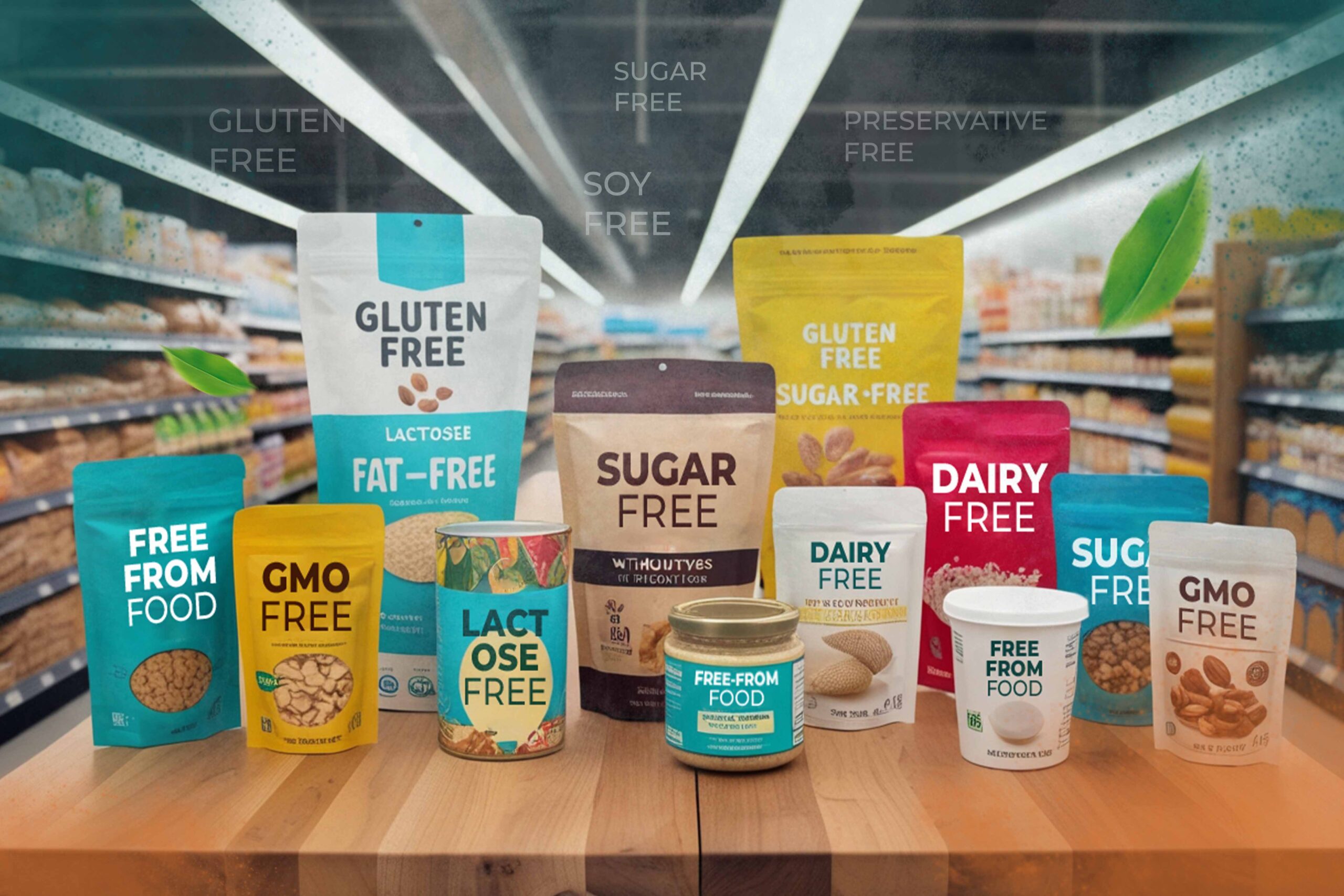Why Free-From Food is the Future of Healthy Eating
Free from food has become a game-changer in the retail sector, offering a healthy alternative for consumers with specific dietary needs. This growing market segment caters to individuals with food allergies, intolerances, and those seeking healthier lifestyle choices. Retailers and food sellers are witnessing a surge in demand for products free from common allergens like gluten, dairy, eggs, and wheat, as well as options that are sugar-free and meat-free.
This article will explore the types of free from foods available, the benefits of stocking these products, and the challenges retailers may face. It will also discuss how free from food offers a cost-effective alternative to organic options while still providing nutritional value.
The Rise of Free-From Foods
The free-from food market has experienced significant growth in recent years, with sellers recognizing the increasing demand for products catering to specific dietary needs. This trend, which gained momentum in 2017, has steadily risen over the past decade, attracting consumers and those with food allergies or intolerances.
Growing demand from supermarkets
Supermarkets have witnessed a surge in demand for products free from common allergens such as gluten, dairy, eggs, and wheat. This has prompted them to expand their product range to meet the evolving needs of consumers. The market for free-from foods is particularly strong in developed regions like the Gulf countries, Europe and North America, where consumer awareness and spending power are higher.
Dedicated free-from sections in stores
To accommodate this growing market segment, many supermarkets and food stores have introduced dedicated free-from sections. These areas showcase a wide variety of products, including bread, milk, pasta, chocolates, and even beer, that are suitable for those with specific dietary requirements.
Increased product labeling and allergen information
The rise of free-from foods has been accompanied by stricter government regulations and labeling standards. Manufacturers are now required to provide clear and accurate information about allergens and nutritional content on their product labels. This has increased consumer confidence in free-from products and has made it easier for shoppers to identify suitable options for their dietary needs.
Types of Free-From Foods for Retailers
Retailers can stock a variety of free-from foods to cater to consumers with specific dietary needs and preferences. These products are essential for individuals with food allergies, intolerances, or those seeking healthier lifestyle choices. Here are some popular categories of free-from foods that F&B businesses should consider:
Gluten-Free Products
Gluten-free products continue to grow in demand as more consumers seek gluten-free diets for medical reasons like celiac disease or gluten sensitivity, as well as lifestyle choices. Stores should stock a diverse range of gluten-free alternatives such as bread, pasta, crackers, and baking flours. Many new formulations now closely replicate the texture and flavor of traditional wheat-based products, making it easier for consumers to make the switch without sacrificing taste. Supermarkets can also offer gluten-free snacks and convenience foods to capture a wider audience.


Lactose-Free and Dairy Alternatives
Lactose-free and plant-based dairy alternatives cater to a broad spectrum of consumers, from those with lactose intolerance to those who choose a vegan lifestyle. Food businesses should provide lactose-free dairy products such as milk, yogurt, and cheese, alongside plant-based alternatives made from almonds, oats, soy, and cashews. As consumers increasingly focus on sustainability, plant-based dairy alternatives align with eco-conscious and health-focused shoppers.
Allergen-Free Options (Nut-Free, Soy-Free, etc.)
Allergen-free products are essential for customers with food allergies or intolerances, such as nut, soy, or egg allergies. Offering a variety of allergen-free options ensures that retailers can cater to families or individuals with multiple dietary restrictions. This can include allergen-free snack bars, spreads, and baking mixes. Retailers should look for brands that are certified allergen-free and ensure that these products are manufactured in facilities that follow strict protocols to prevent cross-contamination.


Additive-Free and Preservative-Free Foods
Consumers are becoming more health-conscious, seeking foods that are free from artificial additives, preservatives, and flavor enhancers. Stocking additive-free and preservative-free products such as sauces, packaged snacks, and prepared meals can appeal to those prioritizing natural ingredients. These products emphasize clean labels and transparency, aligning with the demand for minimally processed and whole foods. Retailers should showcase these products as part of their commitment to healthier options for their customers.
Benefits of Stocking Free-From Foods
Stocking free-from foods offers significant advantages for retailers, including catering to a growing market and enhancing profits.
Catering to Dietary Restrictions: Free-from products are essential for customers with allergies, intolerances, or specific dietary needs, ensuring everyone can shop comfortably.
Appealing to Health-Conscious Shoppers: Health-focused consumers often seek free-from foods, even without dietary restrictions, due to their perception as cleaner, healthier choices.
Higher Profit Margins: These products often have premium pricing, allowing retailers to boost their profit margins.
Staying Competitive: Offering a range of free-from foods helps retailers stand out, attracting more customers and fostering loyalty.
The free-from food market has a significant impact on the retail sector, providing opportunities to cater to diverse dietary needs and preferences. While challenges exist in sourcing reliable suppliers and managing inventory, the benefits of stocking free-from foods outweigh the difficulties. These products offer a cost-effective alternative to organic options while still providing nutritional value, making them attractive to both retailers and consumers. We hope that this introduction to free-from foods has helped you understand more about their origin, benefits, and scientific studies. For food retailers looking to expand their free-from offerings, Organic Boosting is a platform for exporting organic and/or free-from food where you can find a large selection of over 3,000 products.




